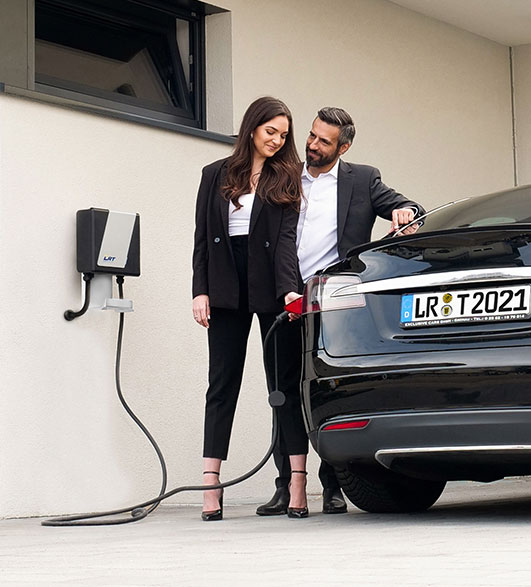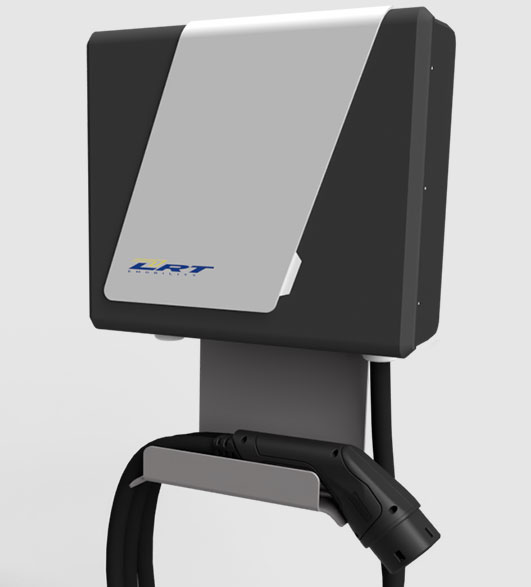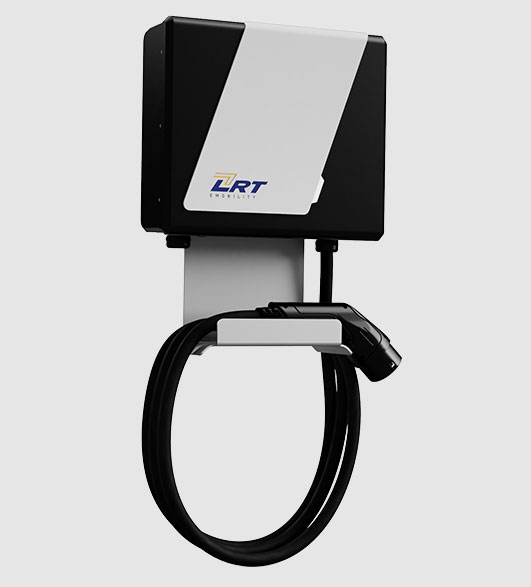Business Individual Wallbox
A wallbox as individual as your company
Our white label solutions are called LRT INDIVIDUAL! You determine how your wallbox is customized. Starting with the application of your company logo, individualization of all technical components, completely independent design of the wallbox, or everything together: The choice is yours and determine the limits!



Three good reasons for wallboxes from LRT eMobility
With a wallbox from LRT eMobility you decide for the future. Don’t worry complicated handling or installation – Our guiding principle is: “It has to simply work for our customers.”
Tested technology
Products are CE certified
Variable system solution
Individual configuration for private and business customers
Simple application
Cost-effective installation, integrated safety features. Very simple operation thanks to user-friendly software solution
Frequently asked questions
Which plug type can be used for charging at the LRT wallboxes?
The LRT eMobility range can be charged in the AC area with a Type 2 plug in accordance with EN 62196-2, and in the DC area with a CCS2 plug in accordance with EN 62196 as standard for the fast-charging stations.
For the fast-charging stations, combinations of CCS2, Type 2, and CHAdeMO are also possible upon customer request.
What is the difference between 11 KW and 22 KW wallboxes?
Basically, both variants differ in terms of the charging power and the scope of installation. In addition, different charging cables adapted to the charging power are installed at the charging station. Among other things, the 22-kW variant requires higher fuses and supply line cross-sections for installation.
You will also find a difference in the power grid operators. For example, with most grid operators, an 11-kW charging station only needs to be registered and a 22-kW charging station needs to be approved beyond that. Due to different power grid qualities, there are regional differences between the individual power grid operators.
Can we connect and charge electric cars at all charging stations at the same time without tripping the fuse?
Simultaneous charging of several electric cars without tripping the fuse is only possible with our HOME Supreme Wallbox. The HOME Supreme charging station ensures that the configured maximum power is not exceeded. The system either gradually reduces the charging power per electric vehicle or ensures that the charging processes are staggered. In this way, we ensure efficient and reliable charging operation while providing maximum charging convenience.
Why is my hybrid/electric vehicle not charging?
- This can have various causes:
- The gear is still engaged
– a somewhat strange-sounding reason, but one that has occurred more than once.The gear must be in “P” mode for parking in “Automatic” for charging to be possible.
- The gear is still engaged
Charging cable is not fully plugged in/connector is not properly connected/cable is hanging too tight:
1.) Lock and unlock your vehicle.
2.) Stop the charging process and pull out the cable.
3.) Then start the charging process again.
Why can’t I disconnect the charging cable after charging?
Please lock and unlock your vehicle with the cable plugged in at both ends. Usually, the cable can be easily detached on both sides afterwards.
Why is my car charging with very little power even though no other car is plugged in?
It may be that the charging power of your vehicle has been set to a lower charging power. This setting cannot be overridden by the charge management.
The charging station is in an error state. What can I do?
Please disconnect and reconnect the power connection to the charging station.
If the problem still persists after that, please contact our customer service at: +49-176-31008419
Why is my vehicle charging slower than the specified power at the charging station?
In addition to the charging power of the charging station, your vehicle has a battery management system that specifies the maximum charging power. Both determine how fast your vehicle can charge.
